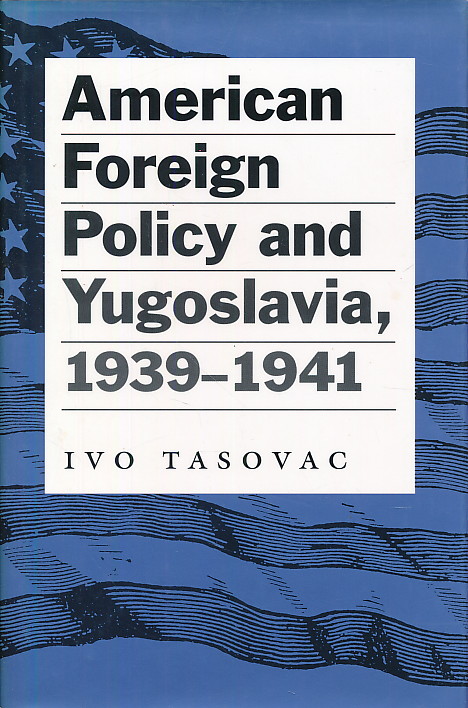American Foreign Policy and Yugoslavia
€24,00
Nema na zalihi
| Težina | 431 g |
|---|---|
| Format | 16 × 24 cm |
| Autor | |
| Izdavač | |
| Mjesto izdanja | College Station |
| Godina | 1999 |
| Broj stranica | 244 |
| Uvez | Tvrdi |
| Stanje knjige | Vrlo dobro |
American Foreign Policy and Yugoslavia, 1939 – 1941. In American Foreign Policy and Yugoslavia, 1939-1941, Ivo Tasovac contends that Yugoslavia acted as an unwilling prop for American involvement in World War II. As a result of America’s commitment to Britain as an exception to their doctrine of neutrality, and of Winston Churchill and Franklin Roosevelt’s shared eagerness for conflict and suppression of Germany, the war and ensuing Communist takeover of Eastern Europe were inevitable. With Yugoslavia cast as the endangered barrier between the Germans and the Mediterranean, Churchill was able to establish a unquestionable need for U.S. military action. Britain’s leader could seize on the small country as a staging area for activating the Soviets in order to eliminate Italy and weaken Germany in the process. Tasovac contends that pressure from the British government and the American diplomats investigating the situation in fact enforced the Serbian coup d’etat to overthrow Prince Paul of Yugoslavia when he appeared to sympathetic to Germany, even though the Serbians had no intentions of fighting. With all of the ingredients for conflict in place, the ensuing struggle for Yugoslavian freedom was unavoidable. By bringing the war to the Balkans, Churchill and Roosevelt shaped the next half century of international politics and domination. American Foreign Policy towards Yugoslavia documents and analyzes the decisions and policies that made this action so detrimental to Yugoslavia and other Balkan states. Tasovac brings new light to the realities of the engagement in Yugoslavia and the long-standing effects, discarding the appearances of history for the truth.This study is ideal for a broad audience of scholars, including those interested in NATO policies applied to the Balkan states, the relationship between the United States and those states, Franklin D. Roosevelt’s influence on the world stage during his presidency and World War II, and the history of Yugoslavia as a whole.
